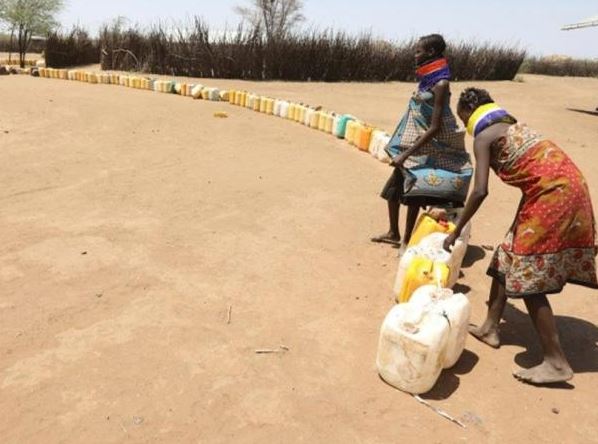×
The Standard e-Paper
Join Thousands Daily

Salome Ekai braces the morning desert chill as she joins other residents of Kalokol at the shores of Lake Turkana on a 10-kilometer trek in search of water.
It is almost 4am as the group winds up its walk at a dry river bed where they have dug a shallow borehole locally known as a ‘laga’ enabling them access clean water beneath the sunbaked sand.







